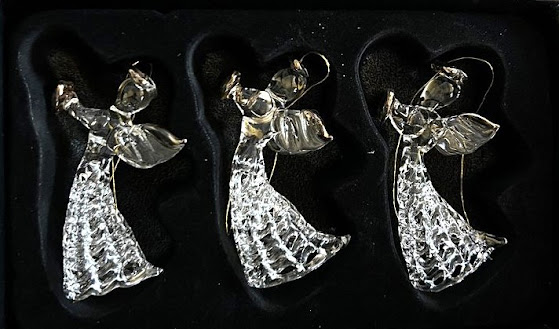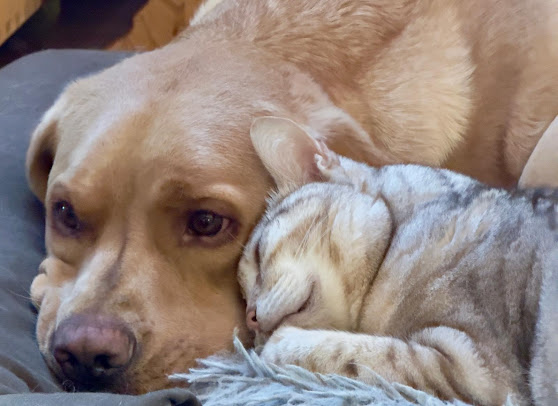Christmas passed . . .
. . . quite quickly! We had a very quiet day on 25th, just the two of us and the animals, though a couple of the daughters ‘phoned, which was really nice. They’re all so busy on Christmas Day, and we never expect, or demand, that they call. We know how they feel.
We had been invited to our children’s homes, but cannot leave home for more than four hours at a time, because of having to feed Jellicoe regularly, and they all live at least an hour away. He cannot control his diabetes all by himself!
We had roast duck, which was a mistake – I never realised that duck could repeat quite so much! ‘Quack, quack,’ it went all evening.
Our eldest great-grandson, aged ten, spent Christmas Eve in A & E, with testicular torsion. If all the men are wincing, you’re welcome. After an emergency operation, he was discharged in time to go home and wait for Father Christmas’s visit, though I think his attention was on things other than the potential fillings in his stocking. He’s still in a lot of pain, poor child.
His grandfather, our son-in-law, also had a hospital appointment on Christmas Eve, to assess the progress of his repaired Achilles’ tendon. His leg is constantly swelling, which is a concern. It will be several more months before he can return to work, no thanks to the misdiagnosis when the accident first occurred. Sometimes it’s true that the further away from London you live, the more uncertain is the medical treatment. Perhaps that’s true of any community far away from up-to-date city facilities.
His wife, our eldest daughter, was busy feeding the five thousand - three adult offspring, in-laws, in-laws’ in-laws, grandchildren, friends, and anyone else looking for a place to lay their head.
Our youngest daughter was unwell with cough, cold, aches and pains and two lively boys. She is recovering now, just in time for her birthday today, on 29th December. Why can’t parents be more responsible and give birth to their children at a sensible, less busy time of year? Her ankle is much improved.
Our middle daughter had a strange day. Her oven stopped working and so did her washing machine - somehow the two seemed to be connected in some way - so she had to improvise a Christmas meal for her twelve-year-old son, which worked well enough. At least she was able to spend the day with him, which had been in some doubt until almost the day itself. Long, sad, unfair story. She came home for the day on Saturday, and we had a Christmas meal together, which we all enjoyed much more than the ‘Festive Fare’ on Christmas Day. She and her little dog have gone home to her cats now, and it’s just the two/six of us again.
Our son prepared a feast on Christmas Eve for his three adult children and their partners and friends, which they all enjoyed, and then he created another banquet on Christmas Day. He is an excellent cook, and a genial host.
Barry went to lose some more blood to the NHS on Christmas Eve, too. He’ll have none left at this rate.
So, we limp towards New Year’s Eve, never my favourite night of the year, so we shall stay in, maybe watch the fireworks from around the world, but probably have an early night. I miss the New Years’ Eves of my youth in Kent, when all the ships marked the passing of the old year and the welcome to the new with a ‘Whoop whoop.’ Heart-stirring stuff!
The young of the community will return to their homes in varying degrees of intoxication, singing or shouting, full of bonhomie and beer. The foxes will announce their presence and call for mates, as they have been doing for several nights, now, and 2025 will dawn, grey and still, and life will continue.
Happy New Year to one and all!


.jpeg)
.svg.png)

































